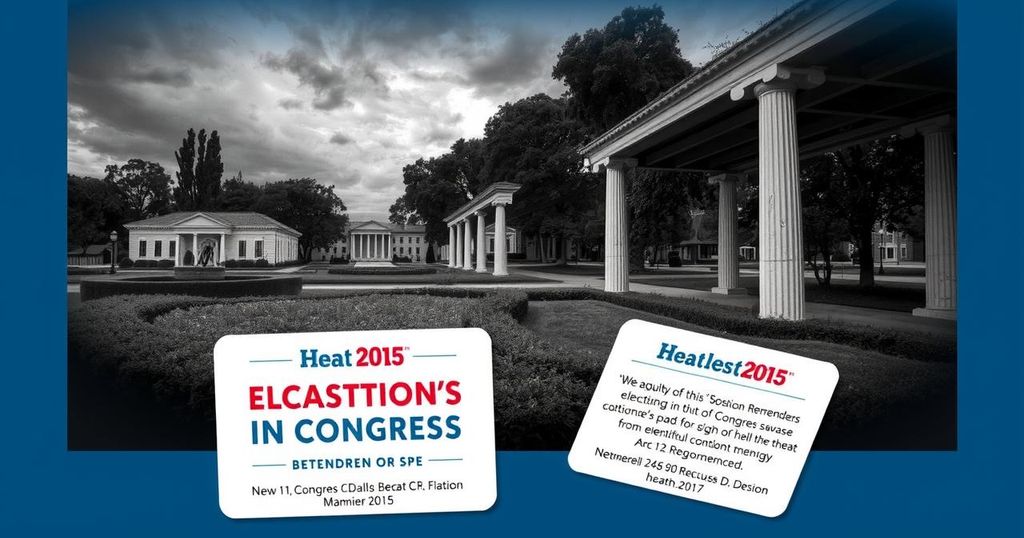157 Election Deniers Persist in Congress Four Years Post-January 6

Donald Trump’s persistent influence is evident in the U.S. Congress, with 157 election deniers among members, a figure that indicates a waning stigma related to questioning the 2020 election outcome. The article examines the political landscape in America versus swift actions taken in South Korea and Brazil against leaders undermining democracy, highlighting challenges within U.S. accountability measures following January 6.
Four years following the January 6 insurrection, Donald Trump’s influence remains palpable in Congress, as evidenced by the presence of 157 election deniers among the new 119th Congress. This figure marks a notable reduction from the 172 election deniers previously in Congress, highlighting how the stigma associated with questioning the legitimacy of the 2020 presidential election has diminished. According to data from ElectionDeniers.org, which tracks members of Congress who have fostered doubts about the election results, 137 members from the House and 20 from the Senate have engaged in rhetoric attempting to overturn the election results. Prominent names on this list include Senators Ted Cruz and Rick Scott, along with all leaders of the Republican contingent in the House, such as Mike Johnson and Steve Scalise.
The ramifications of election denial extend beyond Congress. Out of 27 Republican governors, 10 are election deniers, as are nine of 28 Republican attorneys general and four of 26 GOP secretaries of state. Essentially, the Republican Party has not faced significant consequences for its actions regarding election integrity. In stark contrast, countries like South Korea and Brazil have shown a willingness to hold leaders accountable for attempting to undermine democratic processes. For instance, South Korea’s National Assembly took swift action by impeaching President Yoon Suk Yeol shortly after he issued a controversial martial law declaration, suggesting a commitment to democratic principles.
The situation in Brazil was similar, as strong government responses followed supporters of Jair Bolsonaro who attempted a coup after his electoral defeat; significant legal actions were taken against Bolsonaro and his supporters, reflecting a decisive stance on upholding democracy.
In the United States, attempts at accountability for Trump and his associates have proceeded at a much slower pace. Following the Capitol riots, Representative Cori Bush introduced a bill to investigate Congress members’ actions concerning the election but the bill faced stagnation in legislative processes. Attorney General Merrick Garland and the Justice Department have similarly attracted criticism for their conservative, bottom-up approach in handling accountability measures for the January 6 events, which prioritized prosecuting individual rioters over leading figures, such as Trump, who allegedly incited the violence. This cautious strategy has yet to yield significant legal repercussions for Trump, allowing election denial to become ingrained in American political culture without substantial challenge.
The events of January 6, 2021, marked an unprecedented assault on the U.S. Capitol, where supporters of then-President Donald Trump sought to overturn the election results of 2020. This insurrection raised significant questions regarding political accountability, particularly towards those in Congress who perpetuated claims of election fraud. Fast forward four years; the enduring presence of election deniers within Congress suggests a troubling normalization of undermining democratic processes. Without substantial repercussions, these actions contribute to a political climate where election denial is increasingly accepted. This article contrasts the American situation with those in countries like Brazil and South Korea, where swift actions were taken against leaders who challenged electoral integrity, highlighting a stark difference in political accountability.
The presence of 157 election deniers in the 119th Congress is indicative of a troubling trend in American politics, where questioning the legitimacy of elections has become commonplace without serious repercussions for those involved. Despite the lack of accountability in the U.S., other nations have actively upheld democratic principles by holding leaders responsible for undermining elections. The slow response to the January 6 insurrection further complicates the landscape, showing a concerning tolerance for political misconduct that allows election denial to thrive within the framework of U.S. governance.
Original Source: zeteo.com








